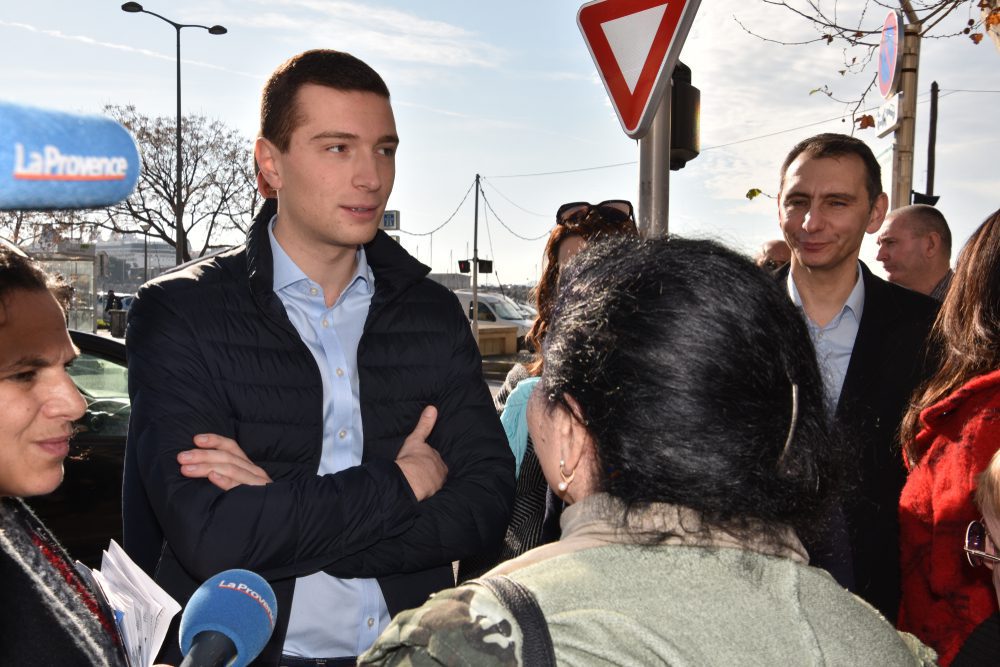
In a little less than a month the French will go to the polls for the first round of the presidential election. As the election approaches, tension is mounting and violence is being targeted at activists of the two parties of the French national right, Marine Le Pen’s Rassemblement National (RN) and Éric Zemmour’s Reconquête party.
The last few days have seen an increase in intimidation and serious verbal and physical attacks.
The president of the Rassemblement National, Jordan Bardella, has sent an official letter to the Minister of the Interior Gérald Darmanin to draw his attention to these repeated and serious incidents, which are critically damaging to the serene exercise of democracy as the elections draw near. Bardella urges him to “crack down” before the situation degenerates.
Devant le climat de violences qui s'aggrave à l'approche du premier tour de l'élection présidentielle, j'alerte solennellement @GDarmanin et lui demande de tout mettre en oeuvre pour que la campagne se déroule plus sereinement et démocratiquement ⤵️ pic.twitter.com/NiEVhc3XZv
— Jordan Bardella (@J_Bardella) March 21, 2022
Over the weekend, both parties took turns falling victim to brutal attacks. After Éric Zemmour’s meeting in Metz in Moselle on Friday, March 18th, two young leaders of the Reconquête party—including Stanislas Rigault, the president of the youth movement Génération Z—were savagely attacked and insulted by a dozen individuals. The scene, filmed, made the rounds on social networks and caused indignation at the violence that it showed. The next day, RN regional councillor Stéphane Rambaud and his team were assaulted and pelted with stones in the middle of a poster-pasting operation in Hyères, in the Var department, near the city of Toulon. On the same day, in the Paris suburbs, six Reconquête activists and three teenagers aged 11 to 15 who were accompanying them were doused with petrol as they unfurled a banner over the motorway calling for a vote for their candidate. On Sunday, March 20th, in the Vaucluse department (southern France), more Rassemblement National activists were attacked during a stop of Marine Le Pen’s campaign bus in the small town of Vedène. One of them had to be taken to the emergency room and hospitalised.
These attacks were exploited by both parties as opportunities to criticise the current administration’s poor handling of security and immigration. The person in charge of Éric Zemmour’s sponsorships, Dénis Cieslik, who was attacked in Metz, tweeted: “This is the daily life of many French people, and of many activists. The result of 40 years of immigration and laxity.” Despite the spin, the reality is that the attacks testify to the advanced deterioration of the political climate in France: an accumulation of tensions in society, ready to flare up at any moment.
Éric Zemmour, himself the victim of a benign aggression during one of his trips to the south-west—an egg thrown at him—denounced the laxity of the authorities towards troublemakers, which he considers to be a “call to re-offend.” Those who sprayed petrol on the activists in Essonne were given a simple “citizenship course”—a punishment that seems light in comparison to the risk incurred by the victims. “There was another objective behind it, certainly to set the fire and finish the job,” explained Stéphane Milosevic, municipal councillor and local referent for the Reconquête party.
In his letter to the Minister, Jordan Bardella shares this feeling of laxity and favouritism towards the aggressors, whether they are “ultra-left militant individuals or opportunistic aggressors.” These attacks “are each time triggered by the feeling of impunity from which their perpetrators systematically benefit,” said the Rassemblement National president. His approach was welcomed by activists from both parties, who are aware that they are currently victims of the same threats.
Merci Monsieur @J_Bardella peut importe nos divergences politique ces agressions sont insupportable
— Hugo (@LeZemmourFr) March 21, 2022
